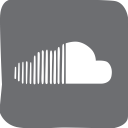Language and Education
Language and Education will use sociolinguistic and multicultural education lenses to examine and increase the impact of linguistics on educational theory and practice. The course will have an emphasis on both Pre-K-12 and higher education and the scholarship of teaching and learning within linguistics.
July 7th: What is linguistics? What is education? What is multicultural education?
Reading for July 7th: Chapter 1 but I reccomend you read all of:
-
Multicultural Education: Issues and Perspectives
by James A. Banks; Cherry A. McGee Banks
Free access through: https://www.wileystudentchoice.com/#/collection
July 11th: What do linguists need to know about education? What do educators need to know about linguistics?
Mallinson, C., Charity Hudley, A., Strickling, L. R. and Figa, M. (2011), A Conceptual Framework for Promoting Linguistic and Educational Change. Language and Linguistics Compass, 5: 441–453. doi:10.1111/j.1749-818X.2011.00289.x
http://onlinelibrary.wiley.com/doi/10.1111/j.1749-818X.2011.00289.x/abst...
July 14th: No class- conference preceding and after the date to discuss final project ideas.
Assignment #1: Due Prior to your conference:
Your Space and Place in Language & Education:
Write a three-page double spaced paper that outlines your own educational autobiography and assesses your space and place in education based on what you have already experienced and the information that you hope to gain this class.
July 18th: The language of learning: A focus on linguistics in Pre-K-12 education
Reading: At least Chapter 5 of Charity Hudley Mallinson (2011; 2015) Understanding English Language Variation in US Schools (copies available to borrow from Prof. Charity Hudley)
https://charityhudleymallinson.com/book/
Thursday, July 20st from 5:00-6:4pm (location: JSB 321) Special Optional Session: Faculty Focus Group: What Undergraduate Materials Do We Need? (with pizza and drinks) A Discussion as We Prepare to Launch a New Series of Linguistics Texts Designed for Undergraduates https://lsa2017.uky.edu/faculty-focus-group-what-undergraduate-materials...
July 21st: The scholarship of teaching and learning in linguistics: A focus on linguistics in higher education
Readers choice from Teaching Linguistics & Teaching American Speech (pick at least one from each)
http://americanspeech.dukejournals.org/
https://www.linguisticsociety.org/content/teaching-linguistics-section-l...
Assignment #2: Linguistic and Cultural Observation of Language and Culture in A School Setting: Observe, interview, or speak with a speaker of another language or variety of English in a learning setting for at least 30 minutes. I prefer the engagement to be live. You will not have research permissions for the assignment so you cannot share your observations with others outside of the class.
In a 2-3 page double spaced paper, address:
1.) The setting of your observation. Include specific details including details about the people and place, how you went about doing the research and the type of social environment were you in, any important changes that happened during your observation in linguistic features that you hear and see, particularly as we have covered them in class so far.
2.) The sociocultural elements of your observation. Address elements from Banks and Banks in your description.
3) The linguistic elements of your observation. Address elements from Banks and Banks in your description.
- Did any of the observations surprise you, particularly in light of our class discussion and reading so far? If so, would you do anything differently if you were to re-do the study in the future?
July 25th: What each linguist can do: Examples of linguists who have impacted education in schools and communities
Readings:
http://www.ling.upenn.edu/pri/index.html
https://linguistics.chass.ncsu.edu/thinkanddo/dialecteducation.php
July 28th: Final presentations due in class; Conclusion, party, and future goals
August 1st: No class.
Final Assigment: Due July 28th: Your final presentation (10 minutes) and paper (5 double spaced pages) should be a cumulative approach to designing a particular lesson, activity, workshop, or awareness campaign that concerns some particular aspect of linguistic education that is applicable in in a particular educational context. You may do the paper or product as an individual, but in the true spirit of inclusion and the multicultural education movement, I encourage you to work in groups that include both students in the course and educators and students in your school setting.





